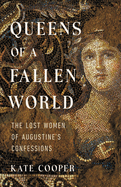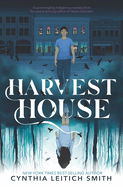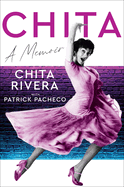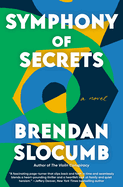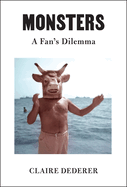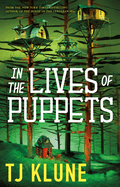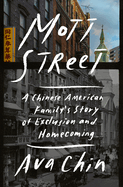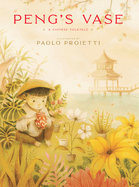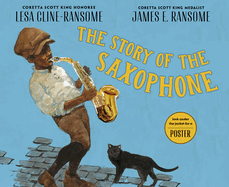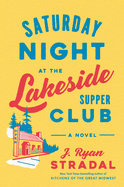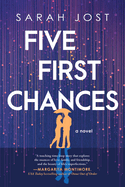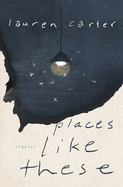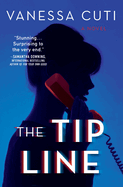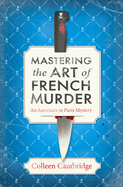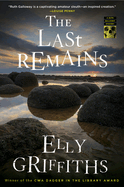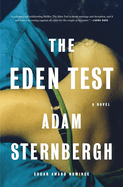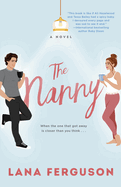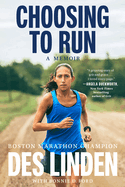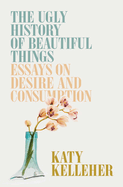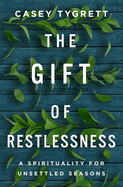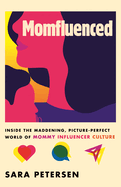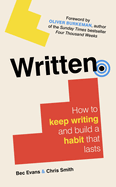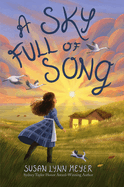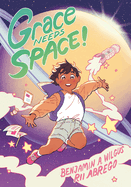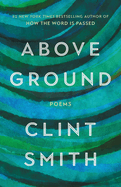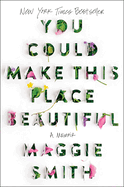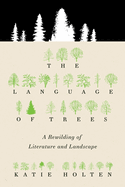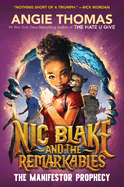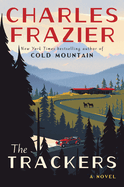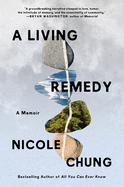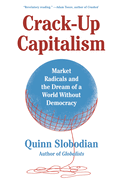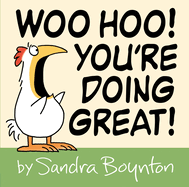Friday, April 28, 2023
Tomorrow is Independent Bookstore Day! Help us celebrate by checking out some of these terrific titles. Among our standout nonfiction this week: historian Kate Cooper's portrayal of the four "enigmatic women who helped shape the world and worldview" of St. Augustine in Queens of the Fallen World; Chita, "a showstopping retrospective" by musical theater legend Chita Rivera; and Ava Chin's "exceptional sophomore memoir," Mott Street, a follow-up to her Eating Wildly. Plus Harvest House, Cynthia Leitich Smith's "atmospheric, transfixing mystery," a companion novel to her Hearts Unbroken, and so many more!
In The Writer's Life, Claire Dederer discusses her surprise at the response to her 2017 Paris Review essay, "What Do We Do with the Art of Monstrous Men?", and her further exploration of its themes in her book Monsters.
Symphony of Secrets
by Brendan Slocumb
A present-day musical researcher digs into the legacy of one of the world's most beloved composers, and whether his music was truly his to begin with. Brendan Slocumb (The Violin Conspiracy) explores the intersections of race, wealth, power, and legacy in the gripping novel Symphony of Secrets.
Bern Hendricks is the preeminent living scholar of composer Frederic Delaney, whose career in the 1920s and 1930s rocketed toward fame and stardom before crashing with an epic failure. When the Delaney Foundation--founded and funded by the composer--reaches out to Bern to help study a newly discovered piece of Delaney's music, Bern, who had always felt a "deep, unreasonable connection" to the composer, leaps at the opportunity. But Bern and his colleague Eboni discover clues that Delaney may not have written any of his music but, instead, taken it from a neurodivergent Black woman named Josephine Reed, and they find themselves scrambling to uncover a truth that the wealthy white descendants of Frederic Delaney are determined to keep hidden.
Slocumb moves between the present-day story of Bern and Eboni's research work and the story of Delaney and Josephine Reed in the 1920s and '30s. Both timelines build with an increasing sense of urgency and desperation as the characters work to release epic music ("invention... synthesis and heartrending melodies") into the world. Set within the racialized dynamic of American history, Symphony of Secrets poses questions of power and autonomy, authorship and attribution. It is a compelling tale of music and mystery not to be missed by fans of either. --Kerry McHugh, freelance writer
Discover: A researcher uncovers the secret origins of music credited to a famous 20th-century composer and must go to great lengths to reveal the truth in this gripping tale of music and mystery.
Saturday Night at the Lakeside Supper Club
by J. Ryan Stradal
When Floyd Muller met Betty Miller and her 12-year-old daughter in a Minnesota diner in 1934, no one could have predicted how this would affect two legendary Minnesota restaurants for decades to follow. J. Ryan Stradal (Kitchens of the Great Midwest; The Lager Queen of Minnesota) returns to the land of prime rib platters and the "luxury cuisine" of complimentary cheese curds in Saturday Night at the Lakeside Supper Club, his third heartwarming novel set amidst the forests and lakes of rural Minnesota.
Floyd owns the Lakeside Supper Club in Bear Jaw Lake, beloved for its "FINE DINING AT A FINE VALUE SINCE 1919." A "rich, charismatic misanthrope" inherited Jorby's Bakery and Café', a family diner founded in Red Wing in 1921; by 1980, this expanded to 91 Jorby's throughout the Midwest, dooming independent spots like the Lakeside. The novel alternates among decades and generations of heirs of the two iconic eateries. By 1996, Mariel, Betty's granddaughter, owns the Lakeside, known as "Floyd and Betty's Lakeside Supper Club" since the mid-30s. She's happily wed to Ned, the son of the Jorby's mogul. Stradal weaves the eras and the families into a smooth narrative replete with "aha!" scenes of how lives intertwine. Happy coincidences typical of rustic small-town life don't shield the warmhearted, honest folks of Bear Jaw Lake from sorrow, and prejudices find their way to the bucolic setting. But love, loyalty, and generous slices of blackberry pie (never "store-bought") guide them into the 21st century. --Cheryl McKeon, Book House of Stuyvesant Plaza, Albany, N.Y.
Discover: Generations of two restaurant families in rustic Bear Jaw Lake, Minn., maintain love and hope amidst decades of serving prime rib platters and adjusting to changing times.
Five First Chances
by Sarah Jost
Sarah Jost draws on her personal battle with anxiety and her experience of moving to a different country to create her protagonist's distinctive and uncertain reality in Five First Chances, a stunning debut full of heartache and raw emotion. Louise is on a journey to find meaning in a whirlwind of mistakes and what-ifs until she has the chance to try again.
Lou's life is at a standstill: she is unhappy at work, hung up on her ex, Romain, and uncertain if she should continue trying to create a life for herself in England or go back to Switzerland. She also juggles a stagnant career and her mother's depression following her grandmother's death. Just when nothing seems to be going her way, a door opens, and she can go back to when she first met Nick Harper at a friend's birthday party, a moment when her world unknowingly changed forever. She then finds herself spending her days between two worlds.
This imaginative and inspirational story, featuring time travel and the opportunity for second chances, explores the struggles of anxiety and depression--and the light at the end of the tunnel. Lou and Nick traverse five timelines, take five chances at love, and engage in endless life-altering decisions until they find their way to their "perfect" love story. Jost delivers a romance with characters who are overwhelmed with loss and who navigate mistakes and regrets, but in this love story she gives them the power to overcome them. --Clara Newton, freelance reviewer
Discover: Five First Chances is a clever exploration of second-chance romance in which two people explore the what-ifs of their lives and discover the meaning of true love.
Places Like These
by Lauren Carter
Loneliness and fragility are at the heart of the stories in Places Like These from Canadian author Lauren Carter (This Has Nothing to Do with You). These 17 elegant tales focus on Canadian women who experience various forms of emptiness. Some of the pieces highlight family dilemmas, such as the woman in "Bones" whose joy over a marriage proposal is tempered by the upcoming trial of her stepbrother. Others are more spiritual, as in "Culture Shock," about a Toronto woman traveling to Argentina to "disturb the cold layer that had settled itself over her nine-to-five life." And the powerful "Point of Ignition" features a college student trying to overcome her drinking problem by dating a classmate, only to discover a closer kinship to her boyfriend's troubled brother.
Carter sets her stories in many locales, including Ontario and San Francisco--"Tenderloin," set in the California city's grungy Tenderloin district, is a standout--and they all confront the pain of dislocation and lives that haven't turned out as planned. A couple of works are too elliptical, but most are beautiful, such as "Triple Feature," a poignant story of older people dealing with past regrets, and "Stories," a wrenching piece about a woman whose aspiring-writer boyfriend steals details she shares and puts them in a story. The narrator of "Grass Fire," a long-married woman whose husband makes a startling confession, realizes she's lived "under a heft of cascaded rubble, sipping at any available air." The same is true of most of the women in this impressive collection. --Michael Magras, freelance book reviewer
Discover: Places Like These is Lauren Carter's collection of 17 tender, painful stories about Canadian women confronting loneliness and the fragility it engenders.
Mystery & Thriller
The Tip Line
by Vanessa Cuti
When a thriller set in the 21st century begins with its female narrator announcing, "I just wanted to get married," readers may wonder if there's a feminist awakening in store for her. But one shouldn't assume anything while reading The Tip Line, Vanessa Cuti's debut, which slyly flouts expectations. Thirty-year-old Virginia Carey thinks the Suffolk County Police Department will be a great place to meet guys, so she takes a job answering its crime line and logging anonymous tips. She's just getting to know a dashing homicide detective when she receives a tip from a female caller: "You have to tell them that there are dead girls out near Gilgo Beach. They're not even buried." The police act on the tip and, sure enough, the bodies of four women are found on the beach. When the caller phones again, she tells Virginia that the women are escorts, as she is, and that she agrees with an idea floated on the news: a cop is behind the killings.
Virginia's narration has a poetic aspect--e.g., "Worry is a color-changing thing... and it turns to anger in the right light." Compounding the narrative's fragmented quality: Virginia sometimes presents her fantasy life as reality before turning to what's really happening. Cuti doesn't deliver the payoffs of a traditional thriller--The Tip Line is too unconventional for that--but she understands that in the best noirs, the most interesting protagonists are compromised. At one point, Virginia feels relief when "the good in me muffled the dark in me." --Nell Beram, author and freelance writer
Discover: In this debut thriller, which slyly flouts expectations, a woman takes a job answering a police department's crime line and is taken into the confidence of a caller who reports a murder.
Mastering the Art of French Murder
by Colleen Cambridge
Colleen Cambridge (Murder at Mallowan Hall) whips up a delectable narrative of French food, unlikely friendships, and life in postwar Europe in Mastering the Art of French Murder, her first An American in Paris mystery. Narrator Tabitha Knight has come to stay with her elderly grand-père and her uncle Rafe after giving up her factory job in Detroit when World War II ended. She's loving her time in Paris, especially because Julia Child is a neighbor (and, thus, she can regularly sample Julia's delicious cooking). But when an acquaintance is found stabbed with Julia's kitchen knife, with a note in Tabitha's handwriting in her pocket, Tabitha undertakes a bit of amateur sleuthing to clear her friend's name and her own.
Cambridge, author of the Phyllida Bright mysteries, expertly evokes postwar Paris: its elegance and weariness, as well as the droves of Americans who bring fresh energy (and perhaps less-welcome elements) to the city. Julia's joie de vivre and enthusiasm for food will be familiar to fans of her cooking show or writings, and Tabitha proves an engaging narrator: she has a nose for clues and a total disregard of any danger she might encounter. As Tabitha investigates the expats who knew the dead woman (many of whom are involved in the same theater company), she uncovers several complex relationships and starts to wonder if the murder may have further-reaching consequences. Witty, well-plotted, and full of délicieux culinary concoctions, Tabitha's first adventure is an entertaining start to Cambridge's new mystery series. --Katie Noah Gibson, blogger at Cakes, Tea and Dreams
Discover: In this entertaining mystery series debut, an American expat with Julia Child for a neighbor investigates a murder in postwar Paris.
The Last Remains
by Elly Griffiths
Because Agatha Christie was something of an amateur archeologist, she likely would have enjoyed Elly Griffiths's Dr. Ruth Galloway mystery series (The House at Sea's End), centered as it is on the head of archeology at the University of North Norfolk. And the Queen of Crime might have especially admired the series' positively Christie-esque 15th book, The Last Remains, with its clutch of colorfully shifty characters, one of whom is unmasked as a killer during the blindsiding reveal at novel's end.
Dr. Ruth Galloway is again tapped as a police consultant after a builder finds a human skeleton while renovating a café. Ruth assesses the bones: they belonged to an adult female, and a metal plate at the ankle confirms that the skeleton isn't especially old. Dental records prove that the deceased is Emily Pickering, an archeology student who has been missing since 2002. Twenty-year-old Emily seemed to vanish following a field trip to Grime's Graves, a prehistoric flint mine, with a motley band of teachers and peers, including, as it happens, Ruth's druid friend, series regular Cathbad.
In charge of the murder investigation is DCI Harry Nelson, whose series-spanning romantic negotiations with Ruth could be packaged as a stand-alone novel. In The Last Remains, Griffiths (The Postscript Murders; Now You See Them; The Vanishing Box) effortlessly juggles their romance, Emily's murder, Cathbad's disappearance, Covid's long shadow, and threats to Ruth's job and safety. It all leads to a resolution that wouldn't be unsuitable for a series finale. May it be a mistake to read too much into the novel's title. --Nell Beram, author and freelance writer
Discover: In the Christie-esque 15th novel in the Dr. Ruth Galloway mystery series, the archaeologist is again tapped as a police consultant when a builder finds a human skeleton while renovating a café.
The Eden Test
by Adam Sternbergh
Marriage's complexities naturally supply an abundance of intrigue, suspense, and even betrayal, as Adam Sternbergh (The Blinds; Shovel Ready) depicts with impressive detail in The Eden Test. Although Gillian Flynn's Gone Girl set a high standard for disintegrating marriages, Sternbergh's fourth novel surpasses even that. This psychological thriller explores the relationship of a couple: their initial passion, their lies and infidelities, and their last-chance attempt to salvage their marriage.
Without telling her husband, Craig, Daisy enrolls the couple for their second wedding anniversary in the expensive Eden Test program; she hopes its motto--"Seven Days, Seven Questions, Forever Changed"--can save their troubled marriage. Craig arrives at the remote cabin in upstate New York, already in a bad mood after the three-hour drive from New York City and upset it'll be a full week without devices, including television. He is especially concerned he will miss his trip to Mexico with his married lover: he has already packed his bags and plans to leave the marriage. Daisy's motives are unclear as Sternbergh carefully metes out the lies and secrets that propel her.
Highly charged deceptions flow through The Eden Test. Daisy and Craig, who hide much from each other, are unsatisfied with their careers and their life together. Sternbergh excels at showing how little each knows the other. Tension bubbles from their relationship; from the isolated, bucolic setting that, as Craig notes, feels a bit "off"; and from local residents who resent the foundation's "citiots" ("city idiots"). The violence that erupts surprises--but isn't unexpected. Each plot point keeps readers deliciously off-kilter. --Oline H. Cogdill, freelance reviewer
Discover: A couple whose troubled marriage is weighed down by betrayal stays at an isolated retreat in a gripping psychological thriller that explores the complexities of a relationship.
Science Fiction & Fantasy
In the Lives of Puppets
by TJ Klune
TJ Klune (Flash Fire; The Extraordinaries; The House in the Cerulean Sea) tugs readers' heartstrings with In the Lives of Puppets, a sweetly angsty, wholly charming post-robot-apocalypse retelling of Pinocchio. Young human man Victor Lawson lives a happy, albeit secluded, life with his loving android father, Giovanni, and his friends Nurse Ratched, an endearingly sociopathic medical robot, and Rambo, a robot vacuum suffering a perpetual existential crisis. Their idyll short-circuits when Victor rescues Hap, a handsome, surly android, from a scrap heap and reactivates him. Hap has no memory of his past but, despite Giovanni's misgivings, he insists he will not harm anyone. Then androids from the outside world discover the family's location, abduct Giovanni, and take him to the City of Electric Dreams. Victor must confront the horrible secrets of his father's old life while leading Hap, Rambo, and Nurse Ratched on a rescue mission through the wilderness of the former United States and into the heart of a dystopian society populated by robots--where saving Giovanni may require dismantling the entire system.
This classic story, retold slant, combines snarky humor with ponderings about the power of choice and forgiveness. Victor's sidekicks steal the show as comic relief, especially wisecracking Nurse Ratched, who says of Hap, "I have a crush on him. Or I want to crush him." Victor identifies as asexual and has tender, complex feelings for Hap, underscoring the tension between artificial and natural life. Speculative fiction readers will fall in love with this whimsical, bittersweet fable. --Jaclyn Fulwood, blogger at Infinite Reads
Discover: This post-robot-apocalypse retelling of Pinocchio showcases TJ Klune's signature humor, whimsy, and pathos.
Romance
The Nanny
by Lana Ferguson
A single dad and his new live-in nanny find a second chance where they least expect it in Lana Ferguson's steamy romance debut, The Nanny. Former camgirl Cassie Evans has just been laid off from a children's hospital when she finds an ad for a high-paying job that allows for her studies in occupational therapy. Executive chef Aiden Reid needs a nanny who can provide consistency for his nine-year-old daughter, Sophie, and accommodate his late hours. It's a perfect fit--except for the inconvenient and intense chemistry.
When she spots Aiden's distinctive scar, Cassie realizes that he isn't just any hot dad; he's one of her former OnlyFans patrons and the same man who ghosted her a year earlier when they'd been talking about meeting in person. Even as Cassie tries to decide when and how to tell Aiden, it's not long before they give in to temptation. Aiden and Cassie's physical relationship dominates their time together. The deception plot is complex enough that it's believable, but Ferguson doesn't drag it out for too long, choosing instead to focus on the protagonists' remaining obstacles on their way to Happily Ever After. Ferguson balances the heat by developing the relationship between Cassie and Sophie and lightens things up with regular visits from Cassie's former neighbor Wanda.
This high-heat, high-sweet romance--for fans of Julie Murphy and Sierra Simone's A Merry Little Meet Cute and Rosie Danan's The Roommate--is a funny, sex work-positive take on the boss-employee trope. --Suzanne Krohn, librarian and freelance reviewer
Discover: A single dad and his new nanny unexpectedly discover they have a shared past in this scorching romance debut.
Food & Wine
Mostly Veggies: Easy Make-Ahead Meals for Healthy Living
by Brittany Mullins
Brittany Mullins of the website Eating Bird Food shares her strategies for planning and preparing vegetable-forward meals, plus lots of flexible recipes, in Mostly Veggies: Easy Make-Ahead Meals for Healthy Living. To readers wary of spending hours preparing endless containers of the same bland meals, Mullins says that the "beauty of meal prep is how flexible it is and how easy it can be adapted to your life." The process of planning, prepping, and cooking enough meals to feed a family for a week can be daunting, but Mullins breaks it down into achievable parts and provides plenty of encouragement along the way. She also shares four months of seasonal meal plans, complete with prep tasks and a shopping list, which provide a good framework for future customization.
Some of the make-ahead mainstays are here, including overnight oats and Mason jar salads, but Mullins adds plenty of variety. Breakfast recipes include sweet and savory options, like Kale Breakfast Quesadillas and Sweet Potato Pancakes. Salads are meat-free but hearty, such as a Cobb Salad with Coconut Bacon, which includes hard-boiled eggs and chickpeas. The best sections feature recipes meant for weeknight cooking: those cooked on a single sheet pan and one-pot or one-pan meals.
This is not a weight loss guide or a restrictive diet plan, but rather an invitation to shift plate composition. Readers can substitute meat for the tofu or beans in these recipes, but they'll always be eating mostly veggies. --Suzanne Krohn, librarian and freelance reviewer
Discover: In this practical cookbook, Brittany Mullins makes vegetables the star of every plate and guides readers through planning, prepping, and cooking weeks of delicious, accessible meals.
Biography & Memoir
Chita: A Memoir
by Chita Rivera
In most showbiz memoirs written when the star is in, shall we say, her third act, the early- and mid-career highlights tend to dominate. Not so with Chita, a showstopping retrospective by musical theater legend Chita Rivera, written with Patrick Pacheco: the 10-time Tony Award nominee and possessor of multiple theater trophies was being courted by awards into her 80s.
Rivera didn't start out much of anywhere. Born Dolores Conchita Figueroa del Rivero in 1933, Rivera grew up in a bustling Catholic household in Washington, D.C., the daughter of a Scottish-Irish mother (or so Rivera thought; the truth is more complicated) and a Puerto Rico-born musician father, who died when she was seven. In hopes of redirecting her tomboy daughter's thrill-seeking energies, Rivera's mother signed her up for ballet lessons. Scouts spotted Rivera as a teenager and lured her to New York's School of American Ballet with a scholarship. Several years of dues-paying later, Rivera found herself originating the role of Anita in the 1957 Broadway production of West Side Story. Suddenly, being "shorter, darker, and more Puerto Rican" than her dancing peers was a career asset.
Chita is notable for its spirit of unflagging fellowship in a famously competitive and backstabby business. Rivera has no time for the press's manufactured rivalries (Rivera versus Rita Moreno, the first West Side Story movie's Anita, for instance), although she allows her alter ego, Dolores, the odd diva moment ("What's up with all these actresses winning Oscars for playing roles I created?"). How fabulous for readers that Rivera is still here--and that they now have her knockout memoir. --Nell Beram, author and freelance writer
Discover: This showstopping memoir by musical theater legend Chita Rivera is notable for its spirit of unflagging fellowship in a famously competitive and backstabby business.
Monsters: A Fan's Dilemma
by Claire Dederer
How do you solve a problem like Roman Polanski? This is how Claire Dederer (Love and Trouble: A Midlife Reckoning) distills the conundrum in the dauntless, cannily reasoned and barn-burning Monsters: A Fan's Dilemma: "Polanski made Chinatown, often called one of the greatest films of all time. Polanski drugged and anally raped thirteen-year-old Samantha Gailey. There the facts sit, unreconcilable. How would I maintain myself between these contradictions?"
It's not lost on Dederer that the question has long been percolating: people can just as easily ask how it is possible to appreciate the work of the virulently antisemitic but irrefutably brilliant German composer Richard Wagner (1813-1883). With a historian's commitment to taking the long view and with fire under her feet from the #MeToo movement, she makes a thoroughgoing inquiry into the vexing question of how to reconcile bad people with their good art.
Dederer's feminism won't allow an essentialist view that monstrousness is exclusively the province of men, but the research she does, as into Doris Lessing, Joni Mitchell, and Sylvia Plath, all of whom in one way or another relinquished a child or two, uncovers a double standard: "This is what female monstrousness looks like: abandoning the kids. Always."
As for the question that launches her book: it doesn't give everything away to say that Dederer has come to see that asking "What do we do with the art of monstrous men?" is the narrowing of the more foundational question "What do we do about the monstrous people we love?" Monsters is the book that anyone determined to live an intentional life owes it to themselves to read. --Nell Beram, author and freelance writer
Discover: In this dauntless, cannily reasoned and barn-burning inquiry, Claire Dederer asks: Is it okay to hate the artist but love the art?
Mott Street: A Chinese American Family's Story of Exclusion and Homecoming
by Ava Chin
Writer-professor Ava Chin skillfully mixed food and (maternal) family in her award-winning 2014 book, Eating Wildly. Her exceptional sophomore memoir, Mott Street, reads like a companion text, inspired by an adult reconnection with her estranged father, who abandoned his wife long before his daughter formed any memories of him. Mott Street is an expansive personal history that originates in China's Pearl River Delta in the 1860s and eventually leads to a six-story building at 37 Mott Street--considered "the height of luxury" when it was built in 1915--in New York City's Chinatown, where both of Chin's parents were born. For more than a century, the Chins and Ng-Doshims called the red-brick tenement home; Chin's writing studio is now on the fourth floor, making her a fourth-generation resident.
In 1882, the Chinese Exclusion Act became the first U.S. immigration law specifically targeting race. Its repercussions hit Chin's ancestors--and thousands of others--truncating families, creating so-called paper sons, and transforming immigrant narratives into "complete and utter fiction," which Chin spent decades unraveling across oceans and continents. From historical erasure to her own separation from her paternal family, Chin discovers that "when you're Chinese in America, with roots that stretch back to the Exclusion era, it is the historical record that is a fabulist fabrication, and the oral stories, passed down from generation to generation, like rare, evolving heirlooms, that ultimately hold the keys to the truth." Enhanced with rare photographs and documents, Chin achieves on the page what wasn't possible in her own actual life: to entwine her parentage into a single enduring story of abiding resilience and indelible inspiration. --Terry Hong, BookDragon
Discover: Ava Chin's second memoir parses fact from legally created fictions to deliver a remarkable record of resilient generations of her pioneering Chinese American family.
Choosing to Run
by Des Linden and Bonnie D. Ford
Professional runner Desiree "Des" Linden wowed the world with her gritty, historic Boston Marathon win in 2018. Linden's memoir, Choosing to Run, engages readers with a mile-by-mile account of that day interspersed with the larger story of her life and career. Linden begins with her childhood in San Diego and the complicated mix of encouragement and pushing she, as a young runner, received from her dad. She recounts her time as a high school and college athlete, finding her feet and gradually coming to love longer races, including the marathon. Linden also explores her long, complicated relationship with brothers Kevin and Keith Hanson and their Hansons-Brooks Original Distance Project in Michigan. She describes the major marathons of her career, her two Olympic experiences (both complicated for different reasons), and her connection with fellow marathoner Ryan Linden, now her husband.
The Boston chapters tighten the lens, focusing on the physical and mental experiences of Linden's race on that cold, rainy day. She recounts the challenges of staying in it, her encounters with other runners, the temptation to quit, and the mental toughness it took to "keep showing up" (a phrase which has become her signature). These chapters give a vivid glimpse into the experience of a true professional, whose grit and dedication matters just as much as her speed. Plainspoken and thoughtful, Linden's memoir is a compelling chronicle of her career so far and an encouragement to runners (and other readers) to pursue their goals with daily work, commitment, and joy. --Katie Noah Gibson, blogger at Cakes, Tea and Dreams
Discover: Elite runner Des Linden's memoir explores her career path and gives a fascinating account of her 2018 Boston Marathon win.
History
Queens of a Fallen World: The Lost Women of Augustine's Confessions
by Kate Cooper
In Queens of a Fallen World, historian Kate Cooper (Band of Angels) reveals the enigmatic women who helped shape the world and worldview of the author of Confessions. Before he was St. Augustine, bishop of Hippo, he was simply Augustine, son of Monnica of Thagaste, in northern Africa. Augustine was "a man who noticed women" as he grew into early adulthood; he memorialized them in his autobiography Confessions for the things they said and lessons they taught. Cooper introduces readers to these four women, who she believes contributed to Augustine's legacy as one of Latin Christianity's most exceptional thinkers: Empress Justina, who tested the limits of her power against male ecclesiastical authorities; his mother, Monnica, who shared childhood stories carrying heavy doses of moral reasoning; a 10-year-old heiress, whom Cooper calls Tacita, or "the silent one," arranged to marry Augustine; and, finally, Augustine's lover of a decade, whom Cooper calls Una (or "one"), the love of his life.
Relying on the Confessions as the primary source material, Cooper admits that Augustine "looms large, and seeing past him requires effort," which she does through well-researched reconstructions of the turbulent fourth-century class and cultural dynamics that circumscribed female agency. A gift of scholarship is Cooper's historical resurrection of Monnica, the formidable Christian mother who Augustine often used as an "alter ego" in his early philosophical dialogues. Queens of a Fallen World reads between the lines of Augustine's famous autobiography to illuminate four women who all left an indelible mark upon the man. --Peggy Kurkowski, book reviewer and copywriter in Denver
Discover: An intriguing study explores the lives of four women mentioned in Augustine's Confessions who influenced the Christian spiritual development of the future saint and bishop of Hippo.
The Ugly History of Beautiful Things: Essays on Desire and Consumption
by Katy Kelleher
As people debate whether it's okay to love beautiful art made by morally dubious individuals, Katy Kelleher mulls over a companion question in her finely wrought collection, The Ugly History of Beautiful Things: Essays on Desire and Consumption: Is it okay to love and own beautiful things that have a dark institutional history? Each of the book's 10 essays focuses on a particular thing of either beauty or beauty-enhancing value: the mirror, the flower, perfume, silk, and so on. Kelleher blends reportage with autobiography, documenting each subject's history (the science and mythology behind it, how it acquired value) while interweaving her highly personal take on the subject: as a Mainer, a millennial, a parent, and someone prone to depression. Although the central project of the book is to face the grim past of treasured things ("The slave trade was funded in no small part by cowrie-shell money"), Kelleher isn't on the side of self-denial: "I do believe the experience of contemplating something and judging it to be beautiful does provide a little moment of mental ecstasy, a petit mort for your brain."
The Ugly History of Beautiful Things makes a valiant case for consuming conscientiously whenever possible: "I want you to understand how that beauty came to be, what price was paid and by whom, and how you can most ethically partake in the beauty of the world, whether it is by visiting a museum, walking on a beach, or commissioning a painting." Or by reading a lovely book like Kelleher's. --Nell Beram, author and freelance writer
Discover: In her finely wrought essay collection, Katy Kelleher considers the ethics of loving and owning beautiful things that have a dark institutional history.
Religion
The Gift of Restlessness: A Spirituality for Unsettled Seasons
by Casey Tygrett
Chicago-area spiritual director Casey Tygrett's third work of religious self-help, The Gift of Restlessness, makes a case for living in the present rather than rushing past what makes us uncomfortable--after all, "holy... things live in those spaces we'd rather avoid." By paying attention to impatience, he argues in a clear and compassionate book seasoned with personal experience, we see what needs to change. Tygrett (As I Recall) writes that he finds himself unsettled every six months or so. When his daughter had a mental health crisis and he required eye surgery, he realized anew the need to live in trusting openness. He believes restlessness is an ever more widespread phenomenon in the pandemic era, as loneliness and fear about the future exacerbate dissatisfaction.
Although there is a Christian perspective here, references to "Spirit" or "the Divine," as well as a genderless "God," promote inclusiveness and ensure the book will be useful to those from other backgrounds. The Lord's Prayer offers a template of universal human questions that serve as chapter titles, such as "Is There Enough?" and "Can Things Be Mended?" Each chapter also ends with a straightforward meditation exercise. The frame of reference is wide, with sources of insight including Buddhist nun Pema Chödrön and Wintering author Katherine May. Tygrett incorporates secular wisdom and looks for the sacred in the everyday, often experiencing epiphanies while walking Winston the Westie.
Alive to common human frailties and the yearning to belong, this is a timely, practical companion for questioning wanderers. --Rebecca Foster, freelance reviewer, proofreader, and blogger at Bookish Beck
Discover: Casey Tygrett's third book, a clear and compassionate work of religious self-help, reassures readers that restlessness is a spiritual gift that indicates when life needs to change.
Parenting & Family
Momfluenced: Inside the Maddening, Picture-Perfect World of Mommy Influencer Culture
by Sara Petersen
Sara Petersen examines the distinct intersections of American motherhood and influencing culture in Momfluenced: Inside the Maddening, Picture-Perfect World of Mommy Influencer Culture. With candor, she shares her experience of motherhood as "so boring, so hard, and so thankless," a reality that resulted in fascination with mothers on Instagram who "make it look magical, like the only thing anyone would ever want to be." Petersen, drawing on extensive research, explores the ways momfluencing reflects and supports systemic inequities in American motherhood--and the many ways it directly benefits and harms mothers.
Petersen defines a momfluencer as "someone who monetizes her identity as a mother on a social media platform," though her analysis includes the impact of any mother's story marketed for the masses. From Betty Crocker ads in the 1950s to mommy bloggers in the early aughts, she applies a cultural and historical lens to the origins of momfluencing, ultimately arriving at a present-day analysis grounded in the legacy of the Cult of Domesticity, the unattainable ideal of the perfect (white) mother, and the shockingly fast growth of social media. Throughout, Momfluenced weaves in examples of momfluencers in the wilds of Instagram to offer very real anecdotes about the ways such content connects new mothers with important resources about mental health and postpartum care; the dangerous political roots underlying some trends; and the capitalist underpinnings of the industry designed to get emotionally vulnerable mothers to buy, buy, buy. Momfluenced is eye-opening and affirming, guaranteed to resonate with anyone who has interacted with a mother and social media in the 21st century--in other words, anyone at all. --Kerry McHugh, freelance writer
Discover: Momfluenced is an eye-opening and thoroughly researched analysis of momfluencer culture, as told by a writer willing to look at the ways such content impacts her own experience as a mother.
Reference & Writing
Written: How to Keep Writing and Build a Habit that Lasts
by Bec Evans and Chris Smith
Written is a valuable contribution to the how-to-write genre that meets writers--and would-be writers--wherever they live, and addresses whatever they are trying to write, and how they are trying to do so. With lighthearted but purposeful prose and a mix of detailed technical research, applied social and productivity science, author testimonies, inspirational quotes, and personal anecdotes, writing coaches Bec Evans (How to Have a Happy Hustle) and Chris Smith, founders of Prolifiko, have something to offer all kinds of writers across genres, ambitions, and skill levels.
From establishing productive, sustainable writing routines to a full-on dismantling of "the quantity myth," Written is full of success stories, cautionary tales, exercises, and advice from literary authors, commercial authors, nonfiction testimonial writers, academic writers, and more. Evans and Smith offer guidance for every challenge by cataloging the immensity of advice on writing; combing through information to separate fact from fiction; and offering sound, specific advice from conventional wisdom; their comprehensive approach ensures Written will have lasting value as a desk reference.
Last but not least, Evans and Smith impart a reassuring philosophy gleaned from years of practice and research. While recognizing that individuality is at the heart of writing--and that a personalized writing process is fundamental to all good work--Evans and Smith also emphasize that at the heart of a successful, replicable writing process is a strong system and an embedment, whether in a community of like-minded individuals or in routines unique to a particular place. --Walker Minot, writer and editor
Discover: Writing coaches Bec Evans and Chris Smith offer engaging, practical, and thoughtful advice for those aspiring to establish a quality, lasting writing routine.
Children's & Young Adult
Harvest House
by Cynthia Leitich Smith
Harvest House, a companion novel to Cynthia Leitich Smith's Hearts Unbroken, delivers a spooky mystery as it speaks to "the crisis of missing and murdered Indian women, girls, and two-spirit people."
High school sophomore Hughie Wolfe, who is "Muscogee-Cherokee-Ojibwe by heritage but Muscogee by tribal affiliation," had expected to be the lead actor in his school's fall theater production, but when the show is cut from the school's budget, Hughie instead volunteers at "Harvest House," a haunted house fundraiser. What starts out as a fun distraction devolves into a racist depiction of Indigenous peoples, including a "beautiful, exotic Indian maiden" role that is supposed to be an homage to the "spurned maiden's spirit" who haunts the crossroads where Harvest House is located. Meanwhile, "The Bad Man" is targeting local brown girls and there are reports of possessed wild animals coming to the girls' rescue. Hughie and his friends think there might be a connection, and set out to unravel the truth of the "Crossroads Ghost."
This is a story about Indigenous people, but more specifically Native women, girls, and two-spirit people. The mysterious Celeste, whose intermittent first-person chapters bear witness to The Bad Man's advances, stands in for those who have experienced tragedy and are too often forgotten, their histories erased. Smith (Sisters of the Neversea) draws on effective examples of microaggressions, bigotry, and exploitation to punctuate her point. But she also includes moments of joy: Hughie speaking to his sister in Mvskoke, the language of his ancestors, and doing seasonal activities with his friends. What results is an atmospheric, transfixing mystery. --Lana Barnes, freelance reviewer and proofreader
Discover: An atmospheric, transfixing Indigenous mystery from Cynthia Leitich Smith.
Peng's Vase: A Chinese Folktale
by Angus and Michael Yuen-Killick, illus. by Paolo Proietti
The childless Chinese emperor at the center of Peng's Vase: A Chinese Folktale may call to mind Willy Wonka: concerned about his empire's future, he decides to look for someone to take over after he's gone. In this picture-book treatment, the classic tale is elegantly and economically retold by Angus and Michael Yuen-Killick, with lustrous illustrations by Paolo Proietti (Before We Sleep), and a twist worthy of O. Henry.
One day the elderly emperor gives a seed to every child at the royal gardens. He instructs each kid to plant the seed in a vessel and care for it, and then return the following year, when he will select one child to be his heir. Peng, a capable little gardener, plants his seed, tends it, and is surprised to find that only his doesn't grow. When it's time to return to the palace, Peng doesn't want to go, but his parents encourage him to tell the emperor the truth. With Peng and the other children gathered around, the emperor confesses that he deliberately distributed dormant seeds (the kids with thriving plants have cheated!), and he rewards Peng with the emperorship for cultivating "the flower of honesty."
Peng's Vase plays out against sumptuous settings aglow with garden colors like goldenrod, peach, and olive green. Proietti's gentle compositions soften the parable's message about the value of truthfulness, although there's also a second, subtler message that Roald Dahl would have supported: parents should sometimes let their kids fail. The experience may bring palatial rewards. --Nell Beram, freelance writer and YA author
Discover: In this picture-book treatment, a classic tale about a childless Chinese emperor's search for an heir is elegantly and economically retold and boasts a twist worthy of O. Henry.
The Story of the Saxophone
by Lesa Cline-Ransome, illus. by James E. Ransome
Joseph-Antoine Adolphe Sax died in poverty in 1894 but left a remarkable legacy: the saxophone. Lesa Cline-Ransome and James E. Ransome, the creative duo behind Before She Was Harriet, tell the story of the instrument's creation in The Story of the Saxophone, a now-essential piece of reading for music lovers.
Adolphe was the inventive son of a Belgian instrument maker who "let him be while [he] tested and tinkered and tweaked" his own instruments. Adolphe dreamt of a brand-new sound and, after much experimentation, built "his masterpiece." Belgium and Paris rejected the instrument, but composer Hector Berlioz championed it, naming it "le saxophon." Adolphe, in an effort to convince the world to embrace his creation, even took part in a "musical duel" with the French military band. Soon, saxophones were a part of regimental bands in many European countries.
The book notes Adolphe's many instances of "bad luck," including blackmail, an attempted stabbing, and bankruptcy. As the book comes to its close, the author explains how the instrument made its way to the Americas and into the hands of such musicians as Lester Young and Charlie Parker. The illustrator incorporates collage elements, such as photos of saxophones, into his dynamic watercolor art. Ransome's detailed, relaxed line captures historical periods with precision and vibrancy, and his illustrations of the jazz musicians who made the instrument famous are especially striking. It's a biography whose warm, mellow tone matches that of the instrument itself. --Julie Danielson, reviewer
Discover: This spirited and reverent biography of the man who created the saxophone traces how the instrument made its way from Belgium to jazz greats in New Orleans.
A Sky Full of Song
by Susan Lynn Meyer
A Sky Full of Song explores a lesser-known Jewish immigration experience in an introspective, compassionate story set in the North Dakota prairie in 1905. Susan Lynn Meyer (Black Radishes) positions the power of family identity against the allure of assimilation for a child who misses home but finds much to love about the new "big and lonesome" land.
Shoshi Rozumny, her sisters, and her mother flee escalating antisemitism in Liubashevka, Ukraine, and join her father and older brother, Anshel, in the United States. In "Nordakota," the Rozumny family joins homesteaders who have claimed free land--available "even for Jews"--and are working to "prove it up." School offers 11-year-old Shoshi an opportunity to make friends, but "trying to be like the others didn't keep the kids at school from thinking that [she] was different." Shoshi and sister Libke, 14, are repeatedly othered and verbally harassed for being Jewish; Shoshi is physically assaulted. Learning to play her father's fiddle offers Shoshi an escape, and a harrowing incident during a whiteout storm teaches Shoshi that Judaism is both part of her proud past and important to her new beginning.
Meyer's contemplative first-person narration allows readers to share Shoshi's newcomer experience. Yiddish peppers the family's dialogue, and the suggestion is that the Rozumnys exclusively speak the language at home. A note references the Homestead Act of 1862 and the Dakota people displaced by it; references to Native Americans in the text offer an empathetic, modern perspective. A Sky Full of Song is a thoughtful piece of middle-grade historical fiction featuring a sympathetic protagonist. --Kit Ballenger, youth librarian, Help Your Shelf
Discover: A Jewish girl faces hostility from peers in addition to the hardships of homesteading in a thoughtful, lyrical story set in early 20th-century North Dakota.
Grace Needs Space!
by Benjamin A. Wilgus, illus. by Rii Abrego
Grace Needs Space is a tender, sci-fi graphic novel about navigating family dynamics after divorce, by author and cartoonist Benjamin A. Wilgus (The Mars Challenge) and Steven Universe comics illustrator Rii Abrego (The Sprite and the Gardner).
Grace is bored with life on the space station Genova with her mom Evelyn, who has the same brown skin and dark hair as Grace--the park is too small and has "all the same stupid plants we have at home." Genova is nothing like Titan, Saturn's moon, a place she will soon be visiting with Ba, her freighter captain mom. "On Titan, they have real greenhouses... and the trees get super tall because the gravity isn't as strong." But when Grace joins pale, red-headed Ba on the Sadie Goat, her mom tends more to the ship than to Grace; on Titan, Ba is busy working. The 12-year-old, irritated at being left alone, ventures off solo to see Titan, where she accidentally gets stuck in an off-limits facility.
Abrego's energetic and emotive illustrations are a tribute to space and the humans inhabiting it. Grace gleefully floats in zero gravity and is ecstatic--wide-eyed and wild-haired--as the shuttle takes off in sharp yellows and oranges. Abrego uses panels and full-page spreads to transport readers to a place where people regularly travel intergalactically, such as when Grace's hands are the literal frame of the inky blackness outside Genova. Wilgus's authentic conversations between Grace, Evelyn, and Ba both capture emotional moments within families and the uncomfortable situations that arise between grown-ups. A relatable and amusing story for all ages. --Kharissa Kenner, children's librarian, Bank Street School for Children
Discover: Grace doesn't have the wonderful trip to Saturn's moon Titan she had hoped for in this tender, sci-fi middle-grade graphic novel.
Shelf's April Stars
The Writer's Life
Claire Dederer: 'The World Was More Interested in Nuance than I'd Suspected'
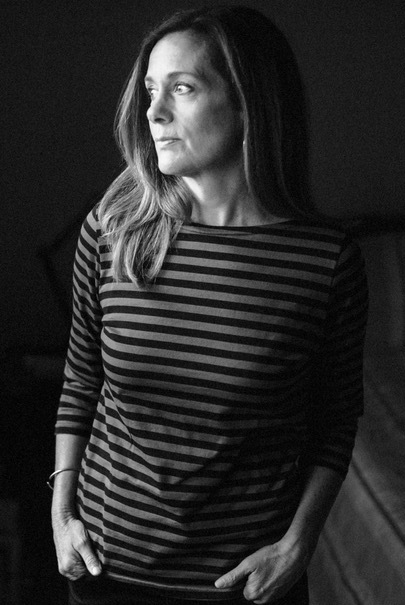 |
|
| (photo: Jenny Jimenez) | |
Claire Dederer began her writing career as Seattle Weekly's chief film critic. She's the author of two memoirs: the New York Times bestseller Poser: My Life in Twenty-Three Yoga Poses and Love and Trouble: A Midlife Reckoning. Dederer lives in Seattle on her late father's houseboat. Shelf Awareness spoke with her about her third book, Monsters: A Fan's Dilemma (Knopf, $28, reviewed in this issue), which grew out of her widely read 2017 Paris Review essay "What Do We Do with the Art of Monstrous Men?"
Did you have any inkling that "What Do We Do with the Art of Monstrous Men?" would catch fire as it did, and what most surprised you about the feedback you received?
I had no idea it would take off the way it did. Funnily enough, it was as a citizen that I found the response most gratifying. The essay was written as the first chapter of a projected book (the book that would become Monsters)--I'd been working on that opening chapter/essay for about a year. It looked as though I'd whipped it off as a response to the #MeToo conflagrations of October 2017, but I'd actually been interrogating the subject for a long time. Given how screwed up and reductive our political discourse was during this period (and remains), I was moved and encouraged that people were responding to a piece that was not a hot take, but a long-simmering consideration. It made me feel like the world was more interested in nuance than I'd suspected, and that gave me a feeling of hope.
On the other hand, I was shocked by how savage the Woody defenders could be! Those men's-rights-type people are out of their gourds. Yes, I realize I'm saying this in print. Bring it on, you maniacs.
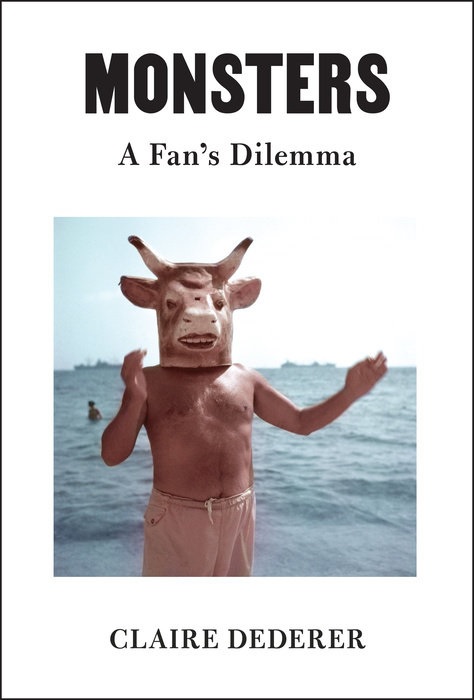 In Monsters you write (semiseriously), "I wished someone would invent an online calculator--the user would enter the name of an artist, whereupon the calculator would assess the heinousness of the crime versus the greatness of the art and spit out a verdict: you could or could not consume the work of this artist." What do you think would happen if the world somehow produced such a calculator?
In Monsters you write (semiseriously), "I wished someone would invent an online calculator--the user would enter the name of an artist, whereupon the calculator would assess the heinousness of the crime versus the greatness of the art and spit out a verdict: you could or could not consume the work of this artist." What do you think would happen if the world somehow produced such a calculator?
I guess people would figure out a way to bludgeon one another with it? Monsters is very much about recognizing that each person has their own inner landscape and history that will shape their response--so I guess we each need our own calculator. (And I believe we each already have one, if we just pay attention to what we're actually feeling.)
Monsters isn't issuing directives, but what would you say to someone who proposed taking a purely emotional approach to your book's central dilemma--something like "Reject the work of a monstrous man if it makes you feel uncomfortable, and enjoy it if it doesn't"?
One of the projects of the book is to reclaim the emotional response to the work. To acknowledge that we're all informed by emotion, as well as by our own biography, and by the forces of history--whether we're aware of all those influences or not. So I'd probably say "Good on ya" to this person, except that would be pretentious because I'm not Australian.
I know from Monsters that you're not a fan of the phrase "cancel culture," which you describe as "hopelessly non-useful, with its suggestion that the loss of status for the accused is somehow on a par with the suffering endured by the victim." Is there a better way to sum up the fairly recent phenomenon of condemning and then closing the door on public figures who are guilty of rotten behavior?
The problem with the phrase "cancel culture" has to do with the way it's been twisted, torqued, spindled, and mutilated after years of use. I think this topic is so hugely divisive and such a political football that any phraseology would ultimately become distorted. What I want is this: a phrase that wasn't so reflexively dismissive of a complex and difficult dynamic, and that doesn't inherently demean people who've shown courage in coming forward to tell their stories.
I'm glad you mention John Lennon in Monsters. I often think about how, if he had been canceled in his lifetime for hitting his first wife, which is of course appalling, he wouldn't have been able to go on and serve the feminist cause the way he did--by championing women's lib, by becoming the first celebrity househusband, and so on. Is this "big picture" view something that fans should keep in mind when considering writing off a monstrous man?
I truly don't know what anyone should do, but I find in my own experience that this kind of long-game perspective really can matter. It's part of the personal equation, along with my own emotions, my own history, my own sense of the crucialness of the work itself.
What role do you think a monstrous man's contrition plays in his possible redemption or image rehabilitation?
As a recovering alcoholic, I find myself aligned--happily or unhappily--with people who have hauled themselves into a position where they are seizing a second chance. Displays of contrition are sometimes facile or cynical, and they sometimes center the experience of the wrongdoer over the experience of their victim(s). But surely contrition is an essential human possibility. Knowing you've done wrong, wanting to do better--if we obliterate that possibility, we've surrendered the capacity to grow and the capacity for real empathy, all at once.
Did you have any trepidation about writing Monsters, given that it takes on tinderbox topics, and what do you predict the response to the book will be?
Let me tell you about my extensive recent experimentation with anxiety-management pharmaceuticals! Seriously, this has been a harrowing book to prepare for publication. I fully expect torch-bearing crowds to converge on my house from all sides.
There's a saying that fear wonderfully concentrates the mind, and that's been my experience. The intense anxiety about the explosiveness of the subject matter led me to poke and prod every utterance in the book to make sure it was what I really thought. This turned out to be a good thing, in terms of my confidence in what I'd written.
In the end, though, I had to try to forget all that and find a way to write without defensiveness. I took as my guiding light this quote from Melissa Febos: "You have to write for the reader of best faith, the reader who most needs your work, and you need to do your absolute best work for that reader." So I cast the bad faith reader out of my mind and pushed the book to be more vulnerable and more true. --Nell Beram
Book Candy
Book Candy
In "The Boom in Female Authorship," NPR's Planet Money analyzes the historical and logistical factors that have led to women writing more than half of books published each year.
---
"Discover the Medieval illuminated manuscript Les Très Riches Heures du Duc de Berry, 'the world's most beautiful calendar' (1416)." (via Open Culture)
---
Mental Floss reminds us of "13 Mnemonic Sentences to Boost Your General Knowledge."
---
Merriam-Webster offers "10 Words for Other People's Children."
Rediscover
Rediscover: Kate Saunders
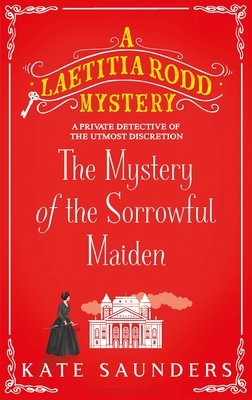 Kate Saunders, a prize-winning novelist, journalist and critic "whose many achievements emerged despite a life of suffering and loss," died April 21 at age 62, the Guardian reported. Saunders initially worked as an actor, joining the National Theatre in 1983, an experience that inspired her second novel, Storm in the Citadel (1989), and the third of her detective novels, The Mystery of the Sorrowful Maiden (2021). By the age of 26, she won a Betty Trask prize with her first novel, The Prodigal Father (1986), which launched a career that produced more than 20 novels for adults and children, ranging from historical romance to detective stories to children's books. A columnist for the Sunday Times, the Daily Telegraph, the Sunday Express, She, and Cosmopolitan, she also judged the 1990 Booker Prize and the 2007 Women's Prize.
Kate Saunders, a prize-winning novelist, journalist and critic "whose many achievements emerged despite a life of suffering and loss," died April 21 at age 62, the Guardian reported. Saunders initially worked as an actor, joining the National Theatre in 1983, an experience that inspired her second novel, Storm in the Citadel (1989), and the third of her detective novels, The Mystery of the Sorrowful Maiden (2021). By the age of 26, she won a Betty Trask prize with her first novel, The Prodigal Father (1986), which launched a career that produced more than 20 novels for adults and children, ranging from historical romance to detective stories to children's books. A columnist for the Sunday Times, the Daily Telegraph, the Sunday Express, She, and Cosmopolitan, she also judged the 1990 Booker Prize and the 2007 Women's Prize.
Saunders became a regular contributor to radio and TV, but that changed "when she gave birth in 1993 to her only child, Felix, and learned on the same day that she had multiple sclerosis," which was kept secret from all but her immediate family, the Guardian noted. She signed up to write five historical romances, starting with her epic Night Shall Overtake Us (1993), which was a bestseller, "but equally good was one of her wittiest romantic comedies, Bachelor Boys (2004)."
Her children's series, The Belfry Witches, which began with A Spell of Witches (1999), was made into a BBC TV series. Saunders also co-wrote Catholics and Sex (1992) with Peter Stanford, then editor of the Catholic Herald, and they later presented a TV series based on the book. Increasingly frail, Saunders still produced several children's books, including Beswitched (2010), Magicalamity (2011), and The Whizz Pop Chocolate Shop (2012). She was also a contributor to the 2016 authorized Winnie-the-Pooh sequel, The Best Bear in All the World.
After her 19-year-old son committed suicide, however, the "shock and grief of this brought on the deterioration of Kate's MS, which went from relapsing-remitting to advancing, and could no longer be kept secret. It was now that she wrote her masterpiece, Five Children on the Western Front, published by Faber in 2014, and, as she put it, 'the book of my life,' " the Guardian wrote.
That book won the 2014 Costa children's book award, and was shortlisted for the Guardian and Carnegie prizes for children's literature. Her novel The Land of Neverendings was also shortlisted for the 2019 Carnegie medal. She published a detective series about a Victorian archdeacon's widow, Mrs. Rodd, starting with The Secrets of Wishtide (2016). Her last children's book, A Drop of Golden Sun, will be published by Faber in 2024.
Read what writers are saying about their upcoming titles


